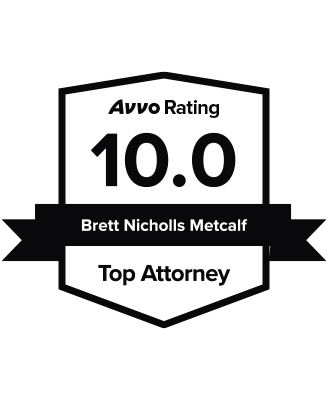Why Hire Metcalf Falls, Criminal Defense Attorneys, P.A.
The penalties for theft are serious. You’re looking at fines and court costs, incarceration, probation, and worst of all, a permanent criminal record. A theft offense makes you appear untrustworthy. Even if you complete your sentence without an issue, people hold this mistake against you for a long time, making it hard to go to school, get loans, keep a job, or rent a home.
Brett Metcalf wants to help you overcome these charges. He’s an experienced theft criminal lawyer in Tampa who started in the State Attorney’s Office. As a former prosecutor, he knows how prosecutors think and build cases. He knows what to expect, which gives him an edge in the courtroom.
Brett began his private defense practice in 2012. Since then, he’s fought hard for Tampa residents. Initially, he’ll work to have your theft charges dropped or reduced. The best possible outcome is your case getting dismissed. But if the prosecutor insists on pursuing charges, he’ll work toward an acquittal. The best defense will depend on the facts, but you can trust Brett to be honest about what to expect, how to beat the charges, or ease the consequences.
Brett’s criminal defense work has led to great results for his clients, which has caught many respected legal organizations’ attention. He was named a SuperLawyer’s Rising Star in 2018, 2019, and 2020, and placed on the Top 40 Under 40 list by The National Trial Lawyers. He has more than 90 five-star reviews and a perfect 10 rating on Avvo.com.
Florida Theft Offenses We Handle
At Metcalf Falls, Criminal Defense Attorneys, P.A., we offer an aggressive defense against all Tampa-area theft charges. Below are some of the most common.
Theft
Under Florida Statute 812.014, you can be charged with stealing if you knowingly obtain or use another person’s property with the intent to deprive the owner it. There are levels of theft in Florida: grand theft in the first degree, grand theft in the second degree, grand theft in the third degree, petit theft in the first degree, and petit theft in the second degree. Grand theft offenses are felonies, while petty theft offenses are misdemeanors.
Robbery
Under Florida Statute 812.13, you can be charged with robbery if you take money or property from another person with the intent to deprive that person of their property by using use force, violence, assault, or fear. If you allegedly had a firearm or other deadly weapon, you’ll face first-degree felony charges. Without any weapon, robbery is a second-degree felony.
Home Invasion
Under Florida Statute 812.135, it is a felony to enter a dwelling with the intent to commit a robbery against an occupant of that home. If you allegedly had a gun or other deadly weapon, you face a first-degree felony. Other forms of home-invasion robbery are still first-degree felonies but with lesser sentences.
Carjacking
Under Florida Statute 812.133, if you use fear, force, violence, or assault to take a motor vehicle away from another person, then you can be charged with carjacking. It is a first-degree felony if you had a firearm or deadly weapon. Without a weapon, carjacking is still a first-degree felony, but with the possibility of a lesser sentence.
Burglary
Florida Statute 810.02 defines burglary as entering or remaining in a dwelling or structure without permission and with the intent to commit a crime. Depending on the facts, like whether you were armed, committed an assault, or caused damage, you can be charged with a first-degree felony. Burglary can also be charged as a second- or third-degree felony if there are no or fewer aggravating circumstances.
Shoplifting
Florida has specific shoplifting laws under Florida Statute 812.015. These describe retail theft, which involves taking merchandise, money, altering or removing labels or codes, transferring containers; or removing items with the intent to deprive a merchant of possession, use, benefit, or full retail value of the property. If you’re arrested for shoplifting, you’ll be charged under Florida’s theft statute. However, the shoplifting law may assign a different punishment, including fines and community service.
Fraud
Under the Florida Communications Fraud Act, Statute 817.034, if you engage in a scheme to defraud someone else and obtain property, including identity theft and insurance fraud, you can be charged with a first-, second-, or third-degree felony or first-degree misdemeanor depending on the value of the property.
Dealing in Stolen Property
Under Florida Statute 812.019, if you traffic in or attempt to deal with property you know or should know was stolen, you can be charged with a second-degree felony. If you initiate, organize, finance, manage, or supervise trafficking stolen property, you’ll face a first-degree felony.








